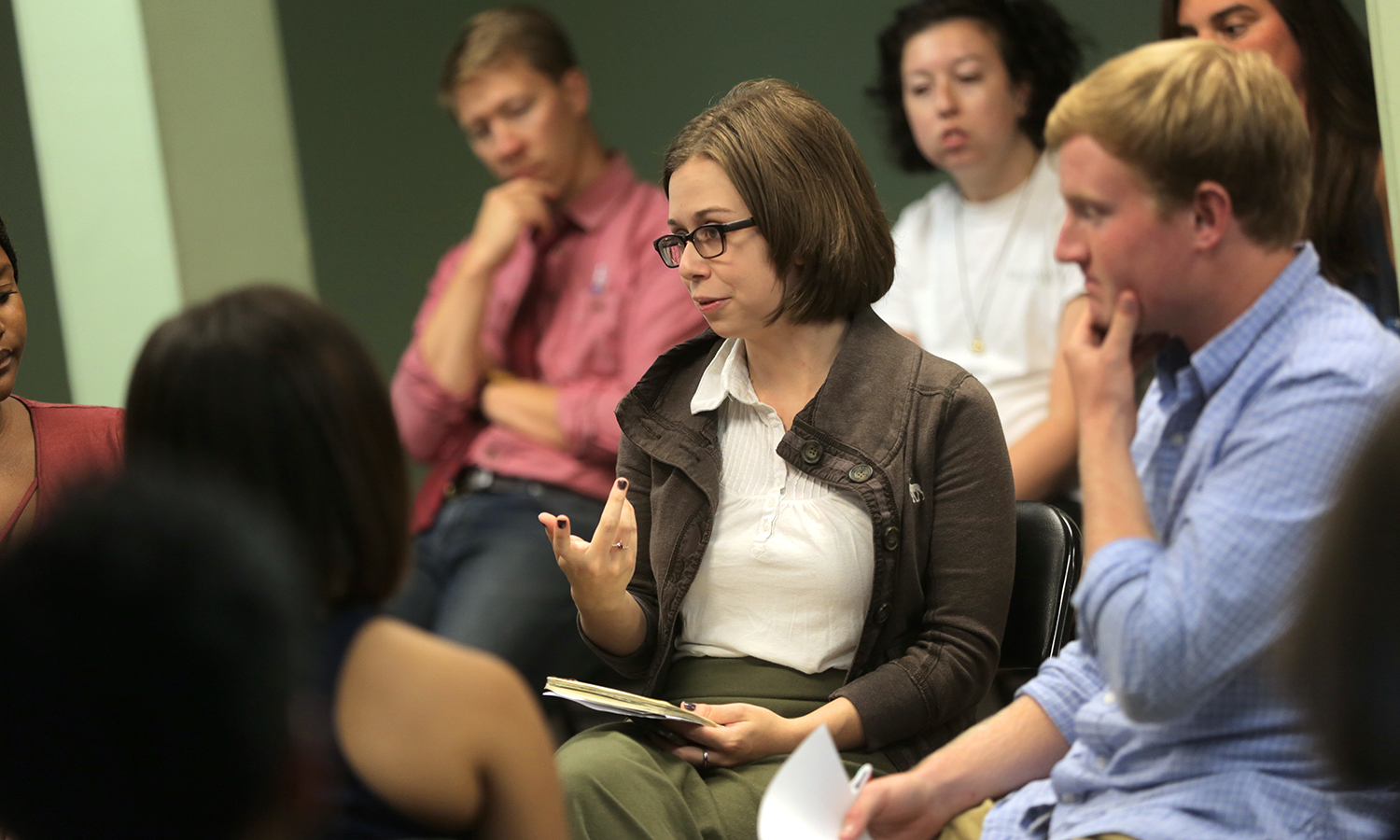
Fisher Center Fellowships
Fisher Center Fellows are an interdisciplinary community of faculty and students who foster equity and mutual respect across campus through conversation and research that explores gender and justice.
Predoctoral Fellows
Predoctoral Fellows gain experience teaching in the private liberal arts college setting while completing thesis work. The fellowship carries a stipend in exchange for teaching one course per semester related to your research and the year's theme, attending Fisher Center lectures and meetings, making a public presentation and assisting with administration of Fisher Center programming. The pre-doctoral fellow participates in the Faculty Fellows Research Group which meet twice a month to discuss research as related to the year’s theme.
The Fisher Center Predoctoral Fellow application is available on the HR website.
2023-2024
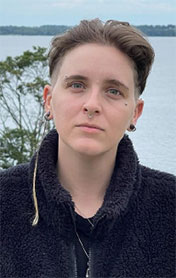
Kit Hermanson (they/them)
Their dissertation work examines non-binary sex and gender forms as they appear in 19th century American religious history. The genealogy their work constructs demonstrates how religious and spiritual ideas and practices created the cultural conditions of possibility for interior, gendered self-conceptualization and identity disconnected from exterior, sexed corporeality that defines non-binary identity in the 21st century.2021-2022
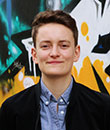
Julia Tulke
Julia Tulke is a PhD candidate in Visual and Cultural Studies at the University of Rochester. Her research centers on the politics and poetics of space, with a particular focus on crisis cities as sites of cultural production and political intervention. Her dissertation project, titled “Artist-Run Athens: Mapping Spaces of Critical Practice between Two Crises, 2008-2020,” it is an ethnographic study of spaces, initiatives, and strategies devised by artists and cultural practitioners in the Greek capital of Athens during the historical period bounded by the 2008 economic crisis and the 2020 pandemic emergency.2020-2021
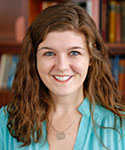
Jessica Farrell
Jessica Farrell is a PhD candidate in African History at the University of Minnesota. Her research on abolition and colonization in the 19th century interrogates the Eurocentric language used by the discipline of History to categorize (periodize and geographically dissect) the past according to a Western worldview.2019-2020
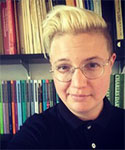
Lisa Avron
Lisa Avron is a Ph.D. candidate within Cornell University’s Science and Technology Studies Department. Avron’s work explores the human dimensions of climate change predictions for her hometown in South Florida, with particular emphasis on issues of systemic inequalities, anti-racism and our contemporary political-economic moment. Avron will teach two classes through the Fisher Center on themes related to her work at HWS through the 2019-2020 academic year. Avron holds an MA in socio-cultural anthropology from the New School of Social Research and a BA in the four-field approach to anthropology from New College of Florida.
2018-2019
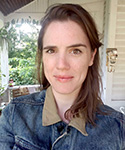
Katryn Evinson
Katryn Evinson is a Ph.D. candidate in Latin American & Iberian Cultures at Columbia University. In her research she concentrates on nineteenth, twentieth and twenty-first century Spain as its issues prove relevant to more global matters beyond Spanish borders. She is drawn to debates centered on the histories of political interruption of capitalism. More specifically, she examines how contemporary cultural production reimagines those very histories as they are expressed in literature, art, theory and politics. For the Fisher Center project, Katryn will work on sabotage as a tactic that interrupts the circulation of capital, while socializing those who partake in its practice.
Katryn completed an MPhil in Romance Studies at Cornell University with a concentration in Spanish (2017); she holds an MA from Universitat Autònoma de Barcelona in Aesthetics and Contemporary Art Theory (2013) with a thesis titled “Failure as an Aporia: The Politics of a Disobedient Structure.” In 2009, she received a BA degree (Licenciatura) in Humanities with a concentration in Philosophy from Universitat Pompeu Fabra of Barcelona.
In addition to being the 2018-19 recipient of the Fisher Center Pre-doctoral Fellowship at Hobart and William Smith Colleges, Katryn is also the 2018-19 recipient of the New York Council Public Humanities Fellowship. Her research has been recently supported by The Society for the Humanities at Cornell University and by travel grants awarded by Columbia University. She was appointed Graduate Research Teaching Fellow by Cornell University’s Center for Teaching Excellence (2016-17) and Mellon Urbanism Fellow for Expanded Practice Seminar from Mellon Foundation (2015-16).
2017-2018

Kai Heron
Heron is the 2017-2018 Fisher Center Pre-Doctoral Fellow and a Ph.D. candidate in Politics and International Relations at the University of Manchester, UK. Heron’s Ph.D. develops Deleuze and Guattari’s concept of minority in the context of anti-fracking struggles in North-Eastern United States. Kai’s work at the Fisher Center will focus on theories of subjectivity, resistance and revolution with an emphasis on Marxist political economy, environmental resistance, Deleuze and Guattari, and psychoanalysis.
Stephen W. Woodworth '54 Student Summer Fellowship
The Stephen W. Woodworth ’54 Fisher Center Student Summer Fellowship offers students in the Humanities, Social Sciences and Fine and Performing Arts an opportunity to pursue their own academic projects over the summer. While the type of research or project is open to fields such as English, Dance, Religious Studies, History, Education, Art, Sociology, Women’s Studies, Lesbian and Gay Studies, and so on, the work must reflect The Fisher Center’s mission of social justice around issues of gender, race, and class.
Recipients:
2020-2021
- Sadia Rahman '22: "Hashtags and Social Media in the Farmers' Protest"
- Aroob Ahmad '22: "Immigration, Identification and Capitalism"
- Caleb Austin '22: "Antidemocracy in America"
2019-2020
- Mercy Sherman
- Willa Dow
- Sky Morgan
2018-2019
- Yamileth Cedeno
- Jean-Luc Shyaka
- Yalemwork Teferra
2017-2018
- Pamela Icyeza
- Andrew Scammel
- Bradley Stewart
- Shaahida Samuel
- Dylan Bennett
2023-2024 Faculty Research Fellows
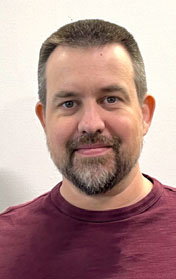 Jonathan Forde, Professor of Mathematics and Co-Chair of the Data Analytics Program
Jonathan Forde, Professor of Mathematics and Co-Chair of the Data Analytics Program
As a mathematical biologist, he uses differential equation models to explore questions in virology, immunology and epidemiology. His project for the Fisher Center focuses on interdependency and constraint in public policy responses to outbreaks of epidemic disease. By understanding the often-nonintuitive links between alternative approaches, the project aims to create robust and adaptable modeling tools to help with future epidemics.
 Feisal Khan, Professor of Economics and Affiliated Faculty in International Relations and Asian Studies
Feisal Khan, Professor of Economics and Affiliated Faculty in International Relations and Asian Studies
His general research interests include the political economy of Islamic banking and finance, corruption and governance, with a particular regional focus on Pakistan. His Fisher Center project “Neither Ceremonially Deist Nor Islamic Modernist but an Islamic Republic: The Long Gestation (’48-56) and Short Life (’56-58) of Pakistan’s First ‘Islamic’ Constitution” will trace how Pakistan underwent the transformation from a functionally secular, i.e., Islamic Modernist, state in 1948 to an ‘Islamic Republic’ by 1956 to its current status of Islamic Maximalism where virtually every significant aspect of the state has to be Islamically justified. The project shall trace the linkages and interconnections between the Indian Muslim’s demand for Pakistan in the 1940s and its inability to agree upon a constitution for almost a decade after independence, and how its most recent constitution (ratified in 1973 and extensively amended in the 1980s) became Pakistan’s most overtly Islamic one.
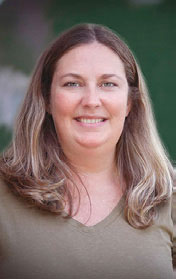 Kristen Brubaker, Associate Professor of Environmental Studies
Kristen Brubaker, Associate Professor of Environmental Studies
She works at the intersection of forest ecology, landscape ecology and critical zone science. She earned a Ph.D. in Forest Science from Penn State University, a M.S. in Geosciences from Mississippi State University, and a B.S. in secondary Education from Penn State University. Her work with the Fisher Center will link historic land use with current ecosystem function. What are the chains that link past human practices to contemporary ecology? Although humans have had an overarching negative impact on ecosystem function, some historic land uses can lead to habitat improvements. The project will explore how anthropogenic features on the landscape can actually increase the resiliency of ecosystems to disturbance and land use change.
 Kit Hermanson (they/them), Fisher Center Pre-Doctoral Fellow and Ph.D. candidate in Religion at Columbia University
Kit Hermanson (they/them), Fisher Center Pre-Doctoral Fellow and Ph.D. candidate in Religion at Columbia University
Their dissertation work examines non-binary sex and gender forms as they appear in 19th century American religious history. The genealogy their work constructs demonstrates how religious and spiritual ideas and practices created the cultural conditions of possibility for interior, gendered self-conceptualization and identity disconnected from exterior, sexed corporeality that defines non-binary identity in the 21st century.
 Betty M. Bayer, Interdisciplinary Feminist Scholar and Professor of Gender, Sexuality and Intersectional Justice
Betty M. Bayer, Interdisciplinary Feminist Scholar and Professor of Gender, Sexuality and Intersectional Justice
She publishes on the history of psychology, most recently on the field’s mid-1950s introduction of the theory of cognitive dissonance in the context of the persistence of beliefs in end-time prophecies. As a Fisher Center Fellow, Bayer explores cognitive dissonance’s chain of movement from inner psychological discord crying out for resolution (consider Barbie’s aha cognitive dissonance moment) to the emblem of this age of becoming inured to noise and disruption and competing, conflicting discourses. The psychological hold of these chains of division and rife (in politics and elsewhere) run counter to dissonance’s other meanings found in music, sound and soundscapes. Bayer asks: Would looking at noise and disruption differently break the hold of these virulent chain reactions? Does dissonance’s (obscured) history in music and sound studies offer a key to dwelling differently, to placing sound at the center of our work, to listen creatively to the sounds of what might be an age breaking up?
 Cynthia Williams, Professor of Dance
Cynthia Williams, Professor of Dance
She teaches courses in dance criticism and embodied writing, dance composition, dance history, improvisation, modern dance technique and Laban Movement Analysis. Recent scholarly work has included choreography for 12 dancers based on Tarot card imagery, a podcast for Jacob’s Pillow on the choreographer Jane Comfort, and the performance of a solo commissioned from artist Paula Josa-Jones. Her Fisher Center project is a sustained exploration and practice of the movement patterns known in the LBMA system as Patterns of Total Body Connectivity, and how these kinetic chains may provide insight into parallel patterns of connectivity/disconnectivity in my thinking, writing, personal, professional and/or creative expressions of self. PTBCs remind us of the possibility of change and the beauty of interconnectedness we carry within our bodies; by awakening to the pathways and support systems already present in our bodies, we can experience both the grounding these patterns provide and the possibilities of choice they offer.
 Anastasia C. Wilson, Assistant Professor in the Economics Department
Anastasia C. Wilson, Assistant Professor in the Economics Department
She teaches courses on political economy, debt and the U.S. economy, economics and gender, and Marxist political economy. Her research focuses on the intersections of social reproduction, gender, race and carceral systems. She is currently working on a project to critically examine the concept of “care” in economics.
